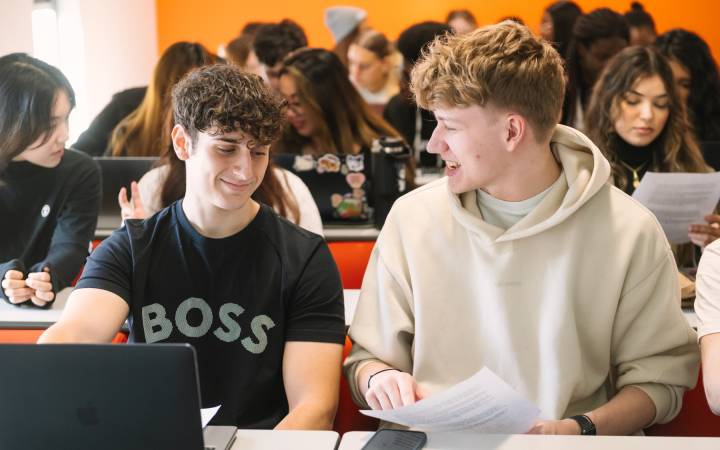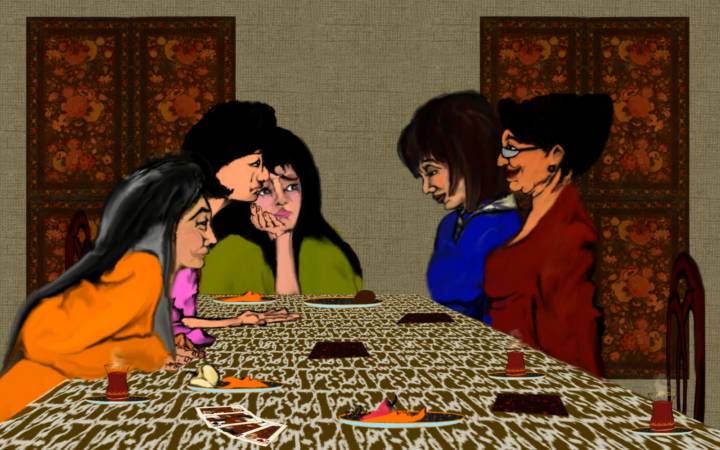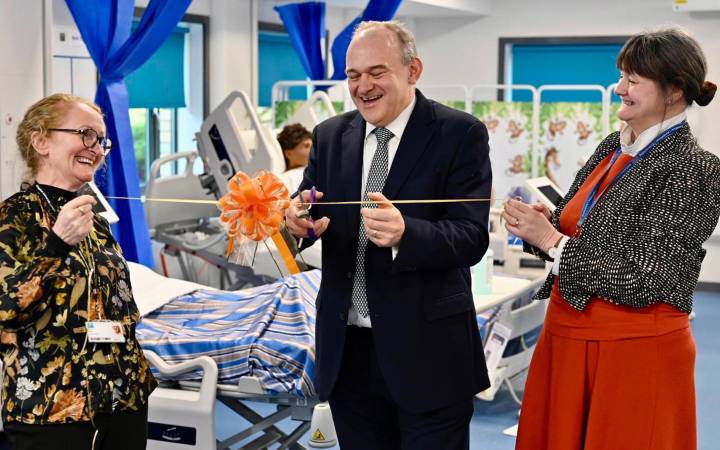Life inside a Lighthouse Lab: Kingston University PhD student shares experience of volunteering in specialist site testing Covid-19 samples
Posted Tuesday 13 October 2020
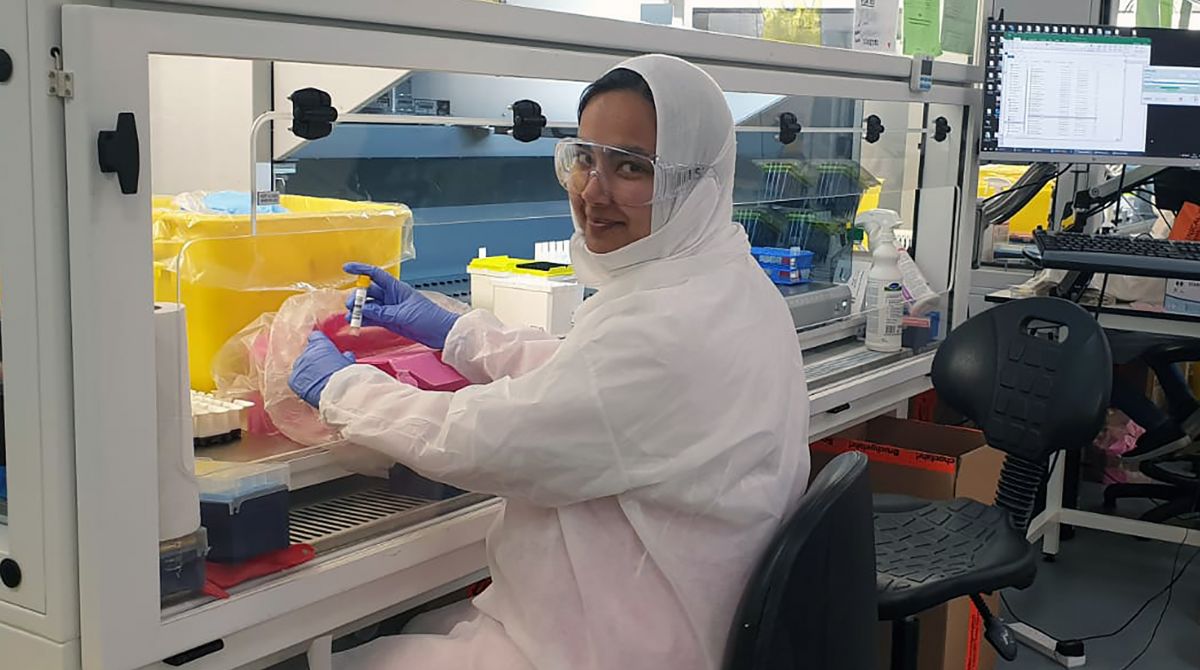
Testing has been a key focus in the battle against Covid-19. As part of the nationwide effort to massively ramp up testing capacity, several 'Lighthouse Labs' were set up across the country through a partnership between the Department of Health, Medicines Discovery Catapult, UK Biocentre and the University of Glasgow. Their development has been closely supported by both the NHS and Public Health England.
Since April, Kingston University Faculty of Science, Engineering and Computing PhD student Amtul Bhunnoo, has been among the skilled volunteers helping make that possible, working 12 hour shifts at one of the Lighthouse Labs in Milton Keynes. Covid-19 swab samples are sent to the laboratories from the NHS on the front line and other testing sites, including the drive-through sites, for analysis. Below, Amtul shares her experience of working in the labs and why she decided to get involved.
When the country went into lockdown back in March, I was preparing to write my PhD thesis on type 2 diabetes to be reviewed by my supervisor at Kingston University, Dr Natasha Hill.
Not long after, I heard about the opportunity to volunteer at one of the Lighthouse Labs that had been set up to conduct the testing of coronavirus samples. It seemed like the perfect way to use my skills and knowledge to help in the fight against Covid-19.
Around 700 people volunteered to help with the labs and I feel very lucky to be one of the 190 selected to have been given this opportunity to help. I was chosen because of my experience in quantative PCR, or qPCR - a method that detects the viral genes presence in a sample that allows us to determine whether a patient is positive for SARS-COV2.
First impressions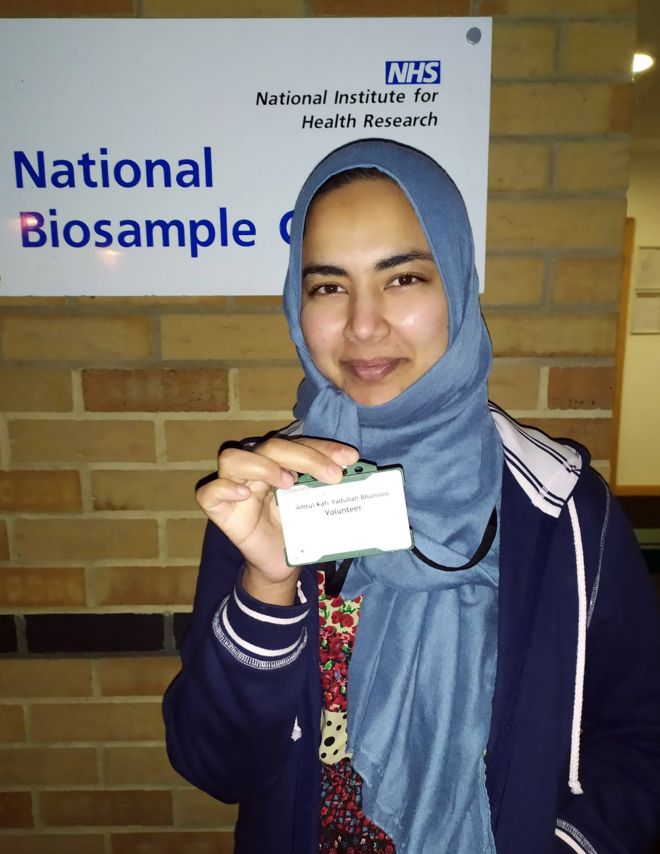 Kingston University PhD student Amtul Bhunnoo outside the lighthouse lab in Milton Keynes.
Kingston University PhD student Amtul Bhunnoo outside the lighthouse lab in Milton Keynes.
Arriving at Milton Keynes in April, I moved into a room in a Holiday Inn and was greeted by a lovely group of staff and volunteers from all over the UK. We were divided into four teams, working three to four days a week on 12 hour shift patterns, so there is always a team working on testing, 24 hours a day, seven days a week.
I chose a team that was starting night shifts during Ramadan, and throughout my time volunteering at the Lighthouse Lab I have managed to fulfil my duties as a Muslim as well as a British citizen in helping my country get back to a form of normality as soon as possible, which I'm proud of.
When I first entered the lab I was astounded to see so many amazing pieces of equipment that had been generously donated by numerous institutions and organisations, including Tecan liquid-handling platforms equipped with robotic arms.
A day in the lab
At the start of every shift I have to check for my name on a board, which tells me where I am allocated to work. Some shifts involve unpacking the nose and throat swab samples. I have to unpack up to 94 bagged samples in a box, which are placed on a tray which is passed through a hatch window to the lab to be unbagged and processed.
On the days when I am allocated to do lab work, I put on gloves, goggles, a lab coat, and a mask before going into the 'mega lab' - it's huge, hence the name. This is an extra precaution as we are also protected by the hood airflow and shield through which we are unbagging or processing the samples to deactivate the virus, by placing it in a deep 96-well plate containing lysis buffer - a solution used for the purpose of breaking open cells.
The Tecan processing is quite a soothing experience, as the robotic arms move from well column to well column, row by row. It almost feels therapeutic, as if I am observing an orchestra play. Every time I place a sample in a well, I am closely monitored by a fellow volunteer acting as quality control, with the placing of each sample being recorded in a document. The careful pipetting skills I have developed during my PhD at the University came in really handy during this work.
The inactivated virus is then prepared with reagents and goes through a number of stages, including RNA extraction, before the final stage where a qPCR machine reads and analyses the plate to determine which samples were positive and which were negative for coronavirus.
Team work
The scale of the operation means that in less than 12 hours, results can be processed and sent out to those tested. Despite working on a diabetes project before coming here, my technical knowledge of qPCR has really helped me adapt quickly to this diagnostic lab. The sense of unity and determination that comes from being part of a close-knit team all working together for the same cause helps us push through the 12 hours without feeling tired - although I do realise that I am ready to sleep as soon as I am done.
A few months ago, the Prime Minister, Boris Johnson, visited the site during my shift and it really brought home how important our work is for the nation. Between the four teams, we get reminders about how many samples have been processed during the shifts of different teams, which creates a healthy competition to beat previous records. I think this is why we were able to reach a million tests as soon as we did.
Between shifts, when we are waiting for more samples to arrive, some creative team members have drawn non-permanent images such as Pikachu, Sonic the Hedgehog or the Cookie Monster on the outside of the Tecan machines, that can be wiped off, paving the way for another drawing. Someone might sketch an outline, but the colouring might be finished by another volunteer, which again creates a very friendly environment.
Friends for life
I am truly amazed at the amount of time and effort everyone has put in - not just the lab operators, but also the shift organisers, engineers, maintenance team, hygiene staff and the caterers. It just shows the enthusiasm to beat this pandemic and move on with our lives. It has been such an eye-opening experience and has really shown how much we have to appreciate each other and roll up our sleeves to get the work done. I have learnt that perseverance is key, not just through my PhD, but in my life.
Two sayings have proven really comforting to me during these times - the adage "this too shall pass", and a quote from the Quran, "God does not burden a soul beyond its capacity". I know that when I go back to the real world and my normal routine of finishing and submitting my thesis, I will miss everyone, but I believe the friends I have made here from such a wide range of backgrounds, whether undergraduates, other PhD students, retired scientists, senior managers or civil servants, will be friends for life.
Amtul Bhunnoo, Kington University PhD student and Lighthouse Lab volunteer.
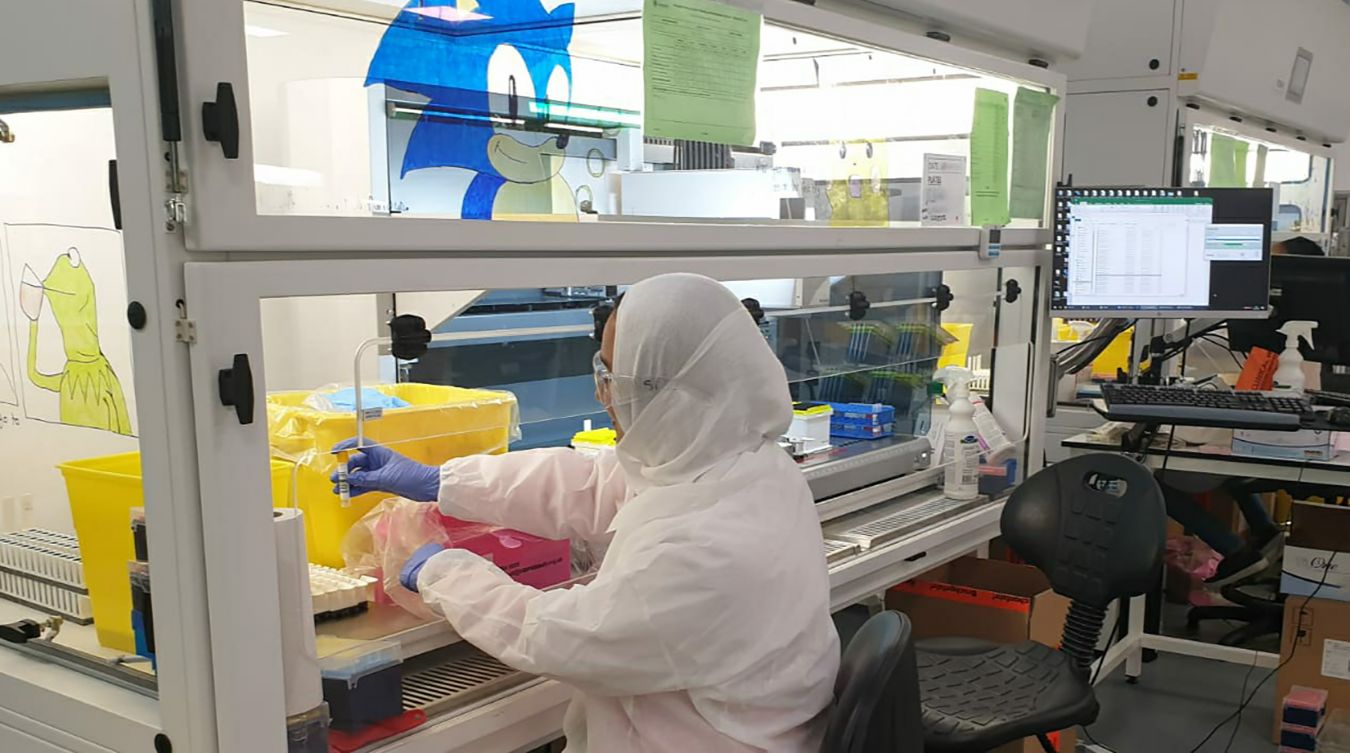 Amtul working on one of the Tecan machines in the Milton Keynes lighthouse lab.
Amtul working on one of the Tecan machines in the Milton Keynes lighthouse lab.Contact us
General enquiries:
Journalists only:
- Communications team
Tel: +44 (0)20 8417 3034
Email us
